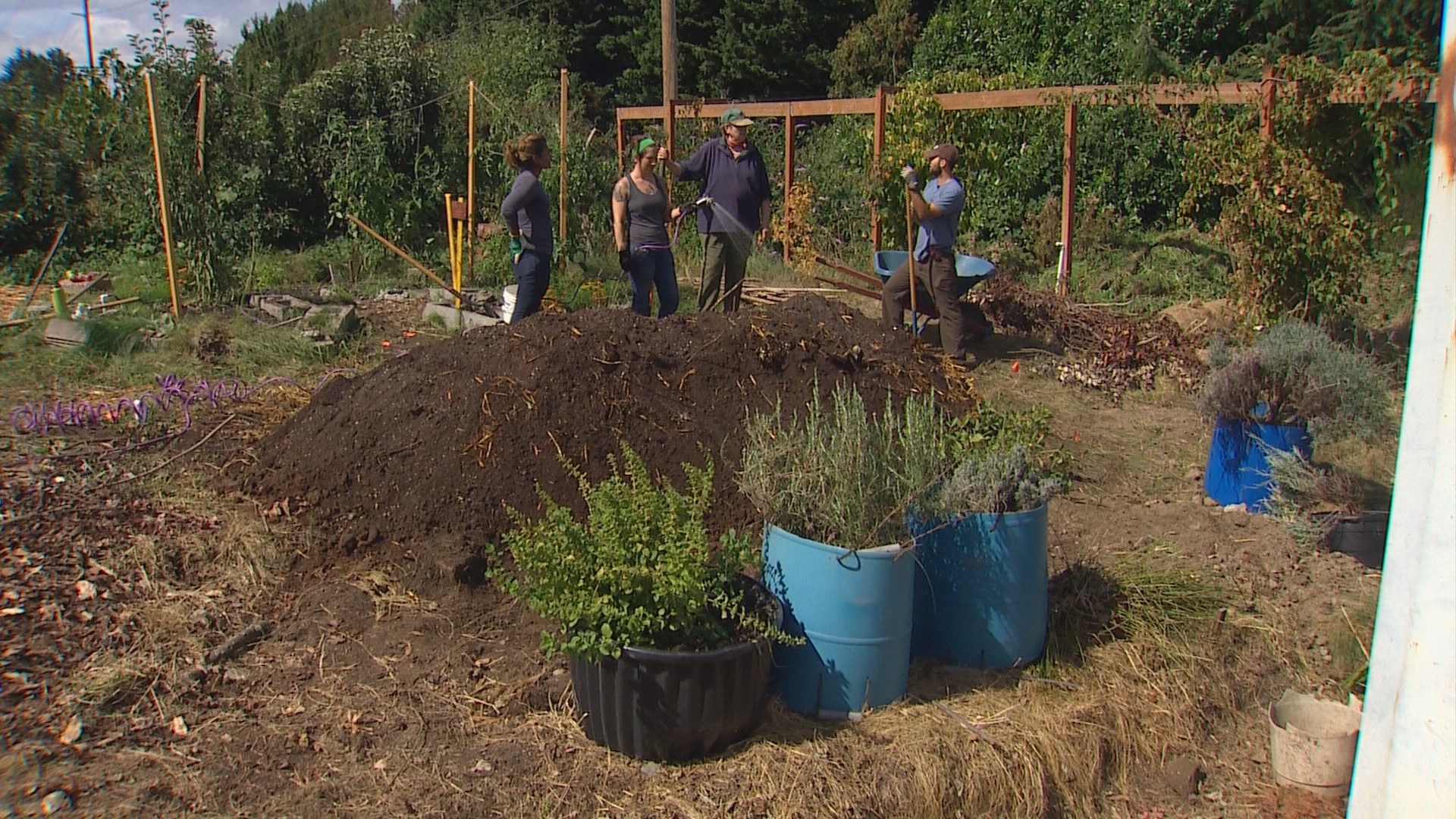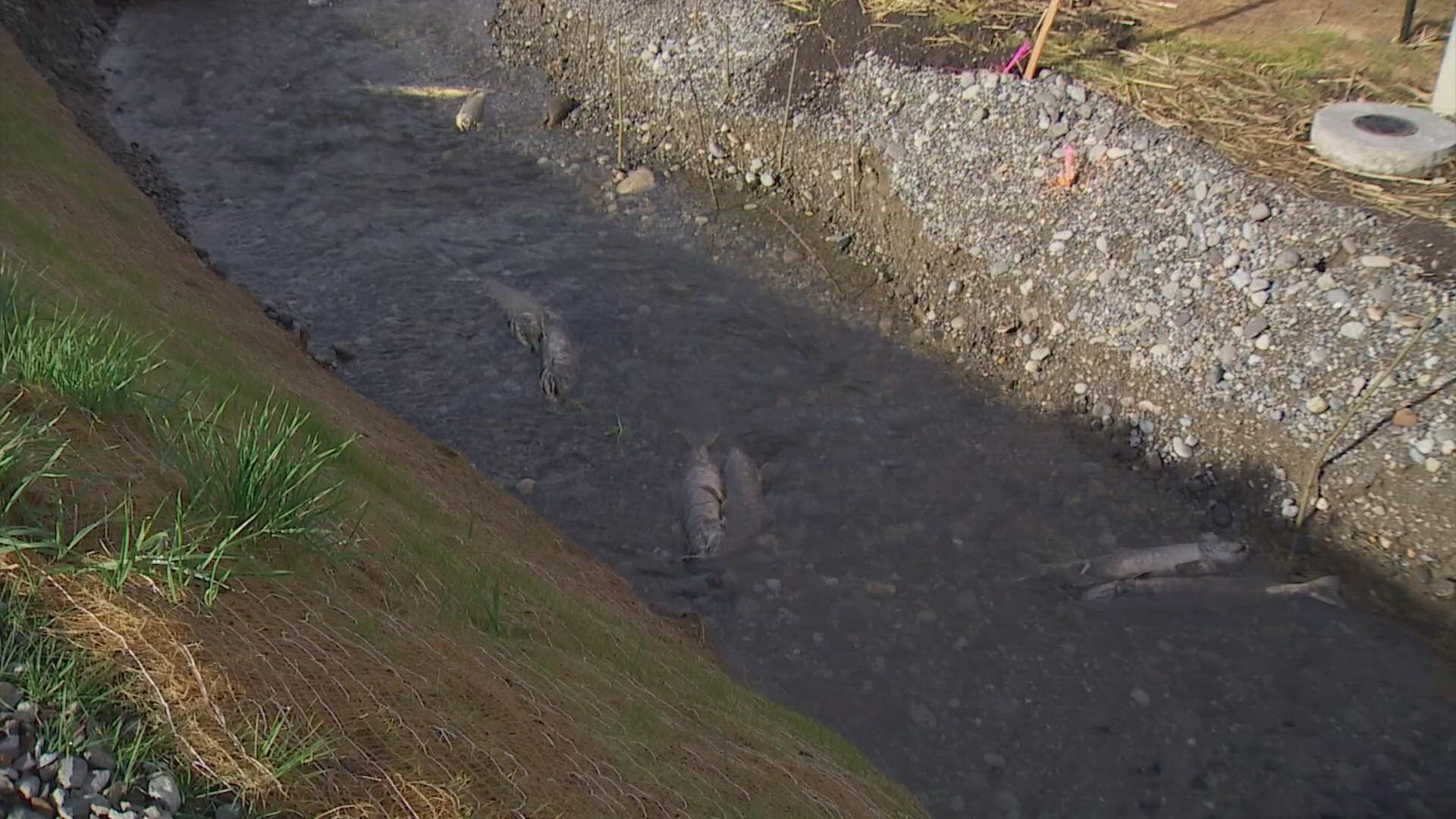Underneath the compost at City Soil farm in Renton is rotting wood. The technique is called hugelkultur.
Hugelkultur is German for hill culture or mountain culture.
The farming method dates back hundreds of years. The wood decomposes and releases nutrients for years. As wood chips get smaller, they create space for natural aeration and also act like a sponge for water.
Hugelkultur beds are also helpful for locking carbon emissions into the ground.
Once watered the first time, hugelkultur beds rarely need human help.
"If it's carefully placed in a spot, that the water on your property, even on a small property, the water's going to go there and congregate there,” said AmeriCorps member Jarret Griesemer. “The wood can soak it up and keep it in place."
Hugelkultur reduces water use by around 80 percent, but that's not all that's special about the garden. The compost comes from a Renton wastewater treatment plant.
"This is all of Renton's poop and Bellevue's poop," said Fedora Williams with a laugh.
It's called bio-solid, essentially human waste turned back to soil that will grow into new food. Faced with years of historic drought, farmers are digging for new ideas.
"We can start integrating resource recovery, resource retention and recycling in the way we grow food," Williams said.
For more information on hugelkultur and biosolids, visit King Conservation District.


